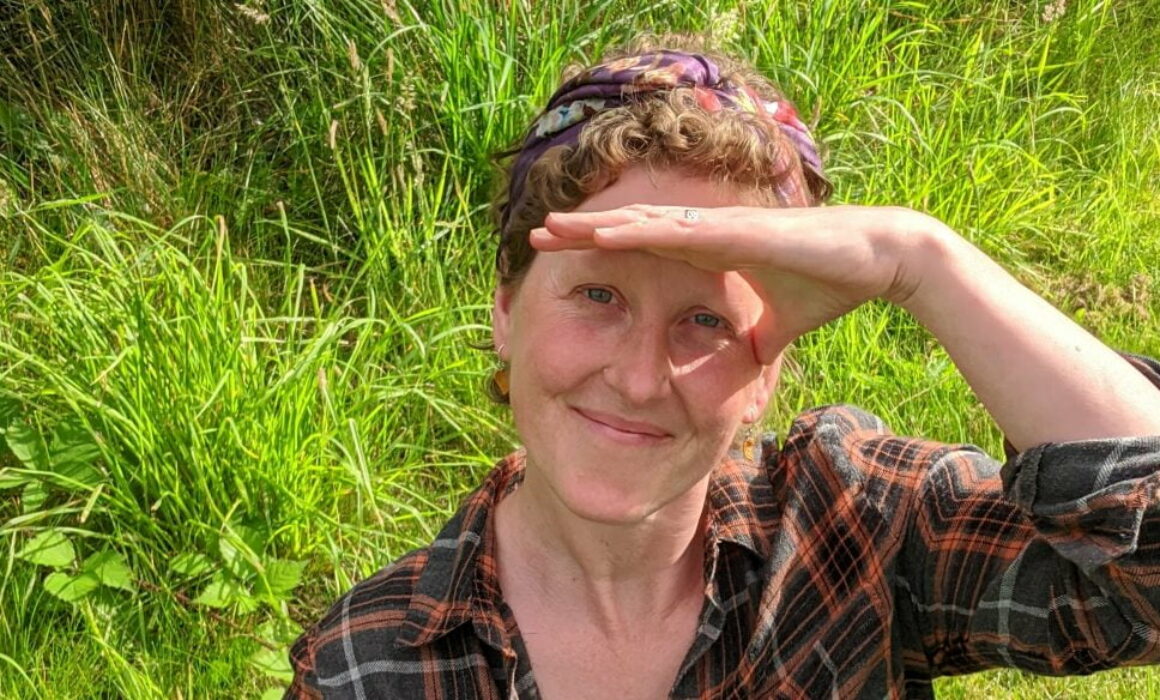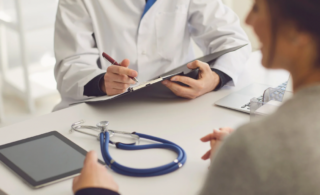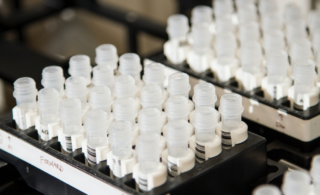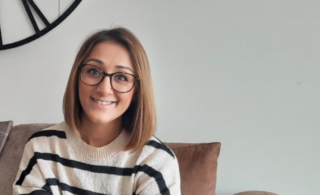
Let's Nail Breast Cancer - Help support our urgent appeal on the 19th - 20th May 2024
Let's Nail Breast Cancer - Help support our urgent appeal on the 19th - 20th May 2024
Let's Nail Breast Cancer - Help support our urgent appeal on the 19th - 20th May 2024
Let's Nail Breast Cancer - Help support our urgent appeal on the 19th - 20th May 2024
Let's Nail Breast Cancer - Help support our urgent appeal on the 19th - 20th May 2024
Clinical trials are an important aspect of treatment for breast cancer – both for primary breast cancer and secondary breast cancer. This article describe’s one person’s experience.
By Lee
There’s always been a voice at the back of my mind telling me to to check my breasts and thank god I did because out of the blue in March 2019 I found a small lump at the top of my right breast. I was a fit and healthy 44 year old with no family history of breast cancer. I’d only ever been in hospital three times – when I was born and for the births of my 2 kids!
A GP referral to the breast clinic, a mammogram, ultrasound and biopsy followed. Then three weeks after being diagnosed with a Grade 2 ER & PR positive tumour with DCIS also present in another area of the breast, I was in the operating theatre having a single mastectomy and removal of 3 sentinel lymph nodes. From the outset my amazing surgeon had been very optimistic, saying my cancer was totally treatable and that it wasn’t likely that I would need further treatment after the operation other than endocrine treatment. Quite a whirlwind few weeks to say the least.
A couple of weeks later I was at a meeting with my surgeon and breast cancer nurse being told that the results of my lymph nodes biopsy showed that out of the three removed nodes one had had metasases. It was very unnerving for me to discover that the cancer had spread to one of my lymph nodes but my surgeon was confident that she had been able to remove all of it during surgery and I could now consider myself cancer free.
This was a lot of information for my shocked, frightened and jaded brain to process in one meeting. Then came the body blow. Because of the one affected lymph node the current advised course of treatment for me was chemotherapy followed by radiotherapy as well as endocrine. This was a major disappointment for me and my surgeon who said that treating me with chemotherapy was like using ‘a blunt instrument’ because it is such a harsh treatment with various potential side effects and it doesn’t actually benefit all patients. She told me that in the future they will be able to use treatments like chemo and radiotherapy in a much more targeted way but for now I would have to be referred for it. However, there was small ray of hope called the OPTIMA Study.
Because I was considered to be ‘low risk’ I had the opportunity to opt into this trial.* If I did so then a tissue sample from my tumour would be sent off to test the likelihood of chemotherapy being a beneficial treatment for me. This is called the Prosigna test. Participants of this trial are randomised by computer into two groups. Those in the first group will not have their treatment decided by the Prosigna test and will be referred straightaway for chemo. Those in the second group will have their treatment decided by the test, so will only have chemo if it is deemed beneficial from the test results. If I went ahead I would not be told the results of this test. I would merely be told whether or not I had been selected for chemotherapy treatment or not. I was given some information to read through and a meeting with a clinical trials nurse was scheduled for the following week. My brain was really overloaded now!
I didn’t feel under pressure from my medical team to partake in the trial but I did want to consider it carefully. I spent an intense few days going over everything, discussing it with family and friends and writing myself a list of pros and cons. I also had a lot of questions. I was worried about what my low risk status was based on. How big a risk was I taking by possibly not being selected for chemo? How well would I cope with another period of uncertainty whilst waiting for the results of the tissue biopsy when otherwise I could get straight on with chemo? I appreciated what my surgeon was saying about the possibility that chemotherapy was unnecessary for me but I honestly found the idea of making a decision like this very daunting and at that point it felt like a decision I wasn’t qualified to make.
The following week I had a meeting with the clinical trials nurse. My husband came along and I also brought a close friend of mine with a medical background so that we could hear all the details together and cover all my questions. The trial nurse was wonderful. Supremely calm and kind, she answered all my queries clearly and didn’t rush me into making a decision. She reassured that my medical team would not put me at unnecessary risk and I had only been put forward for the trial because it was a safe option. After the meeting we went to the hospital cafe where we talked it all through and I did decide to opt into the OPTIMA Study. Clearly for me the chance of not having to have chemo was a big plus but I also felt that it was important to take this opportunity to help future patients. Other benefits included more frequent check ups and further monitoring through 3-monthly questionnaires. I could also withdraw from the study at any time.
The next day I had another meeting, this time with the clinical trials nurse and the consultant oncologist. I filled in the first of the three monthly questionnaires and I signed a consent form for the study.
Not long after opting into the trial I received a call to to say that I was to commence chemotherapy treatment. It felt like a major blow after all the decision making. Chemo did indeed prove to be a very harsh treatment, some of the effects of which I am still dealing with. However, since the trial was randomised I have made my peace with chemo and I am also pleased that I have taken part in the trial. There will come a time when all patients will be offered the Prosigna test to determine their course of treatment so that it can be geared towards the individual patient. It feels good to be a part of the bigger picture of breast cancer treatment and I feel that being on the trial is a positive thing to have come out of my breast cancer diagnosis.
*I also met the criteria for the Posnoc trial which is in reference to radiotherapy treatment but in the end I didn’t opt into this.
To return to the homepage of our Information Hub, click here where you can access more helpful information, practical advice, personal stories and more.
Future Dreams hold a range of support groups, classes, workshops and events to help you and your carers during your breast cancer diagnosis. These are held both online and in person at the London-based Future Dreams House. To see what’s on offer and to book your place, see here.
August 2020 (Reviewed February 2024)
This article was written by a guest author based on their own experience of breast cancer and its treatment. It is important to note that this is one person’s experience and that whilst there may be commonalities between the experiences of different people, everyone has a different diagnosis/treatment plan/general experience. The information and content provided in all guest articles is intended for information and educational purposes only and is not intended to substitute for professional medical advice. It is important that all personalised care decisions should be made by your medical team. Please contact your medical team for advice on anything covered in this article and/or in relation to your personal situation. Please note that unless otherwise stated, Future Dreams has no affiliation to the guest author of this article and he/she/they have not been paid to write this article. There may be alternative options/products/information available which we encourage you to research when making decisions about treatment and support.
Share

Support awareness research
Donate to those touched by BREAST cancer
Sylvie and Danielle began Future Dreams with just £100 in 2008. They believed nobody should face breast cancer alone. Their legacy lives on in Future Dreams House. We couldn’t continue to fund support services for those touched by breast cancer, raise awareness of breast cancer and promote early diagnosis and advance research into secondary breast cancer without your help. Please consider partnering with us or making a donation.



